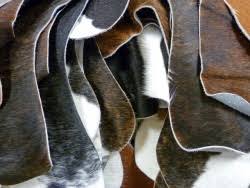By Kayode Solomon Ojewale
The other day, the National Agency for Food and Drug Administration and Control (NAFDAC) intercepted 120 tons of poisonous animal hides and skin, popularly called ponmo in local parlance, and arrested seven merchants of the product in Lagos. NAFDAC then raised an alarm on the importation of the toxic ponmo, warning Nigerians to be careful as the delicacy was said to have found its way into the food market. The Director-General of NAFDAC, Professor Mojisola Adeyeye, said consumption of imported hides treated with chemicals can be injurious to health. Adeyeye warned that those hides were said to have been treated and imported ostensibly for industrial use, not to be consumed.
 Some time last year, the Director-General of the Nigerian Institute of Leather and Science Technology (NILEST), Mohammed Yakubu and the Federal Government proposed a legislation to ban the consumption of animal skin in the country in order to revive tanneries. NILEST DG said that the institute, in collaboration with stakeholders in the industry, would approach the national assembly and state governments to bring out legislation banning ponmo. He added that the habit of eating the animal skin, which has no nutritional value, should be stopped to save the industry and boost the nation’s economy.
Some time last year, the Director-General of the Nigerian Institute of Leather and Science Technology (NILEST), Mohammed Yakubu and the Federal Government proposed a legislation to ban the consumption of animal skin in the country in order to revive tanneries. NILEST DG said that the institute, in collaboration with stakeholders in the industry, would approach the national assembly and state governments to bring out legislation banning ponmo. He added that the habit of eating the animal skin, which has no nutritional value, should be stopped to save the industry and boost the nation’s economy.
Generally, these cow hides and skins usually come as ponmo either as white or brown after processing. Ponmo is processed in two ways – through boiling or by roasting. White ponmo is prepared and processed by boiling the cowhide. This is done by scraping the hair on the cow skin with sharp objects. On the other hand, brown ponmo is obtained strictly when the animal skin is roasted. It is the roasting process that is dangerous making it unsafe for consumption.
Roasting cowhide with tyres and plastics to obtain brown ponmo appears easier, cheaper and faster for processors as the method wouldn’t involve scrapping off the hair because the hair burns during roasting. This process is not only harmful to the consumers alone but also injurious to the health of ponmo processors and residents of the area where the roasting is done as they inhale the soot emanating from the fire fuelled by plastics, tyres and discarded shoes. The profit a ponmo processor realizes cannot be compared to the risk such unwholesome practices pose to the health of consumers. Anyone who, on grounds of greed, attempts to tamper with the health of the citizens must incur the wrath of the government.
If the roasting process of brown ponmo is fuelled by charcoal obtained from firewood, it may be nontoxic and probably be fit for consumption. However, health hazards inherent in consuming animal hides openly roasted may include cancer, damage of the heart, liver, kidney and increased risk of plastic anemia.
Investigative research conducted by experts on cow skin roasted with tyres revealed that it contained high level of heavy metals such as Lead and Zinc. Traces of polycyclic aromatic hydrocarbons were also found to be present in ponmo that is processed by roasting with tyres and plastics. This is because cowhide meats are likely to be exposed to toxic chemicals when the fire used in processing them is from burnt tyres and plastics. Some processors also use old shoes, black oil substance and firewood to roast cow skins. Various studies have shown and proven that the accumulation of carcinogenic heavy metals in the human body can cause terminal illnesses which may lead to death.
In order to prevent the dangers posed by toxic ponmo from consuming its consumer, NAFDAC must step up its surveillance activities and ensure that all food markets and warehouses are thoroughly combed. Local governments across the country are also duty-bound to conduct regular checks in all food markets because it is under their purview to regulate market activities. We avoid preventable death occasioned by what we consume if all hands are on deck as everyone duly and dutifully plays their role.
Processors of ponmo who engage in unwholesome practices of roasting cow hides and skins should be arrested and prosecuted by appropriate government authorities. There should also be proper sensitization on dangers associated with the consumption of ponmo that is prepared by such unwholesome processes. The Standards Organisation of Nigeria (SON) and NAFDAC are expected to be at the forefront of creating awareness. These two agencies should, also as part of their responsibilities, teach Nigerian citizens how to test for the toxicity of what they consume. All food items imported into the country must be tested to ensure they conform to standards. The Nigeria Customs Service, Nigeria Immigration Service and other security outfits who man the borders would do well to keep an eagle eye on unscrupulous importers who divert cowhides meant for industrial use to the food market.
So, before you eat that ponmo, be sure of the source and how it is processed to know if it is the one fit for consumption, not the harmful one. Do not be carried away with cheap ponmo and forget to probe further the source. If you are unsure of the source and means by which the ponmo you are about to consume is processed, avoid it as a delicacy.
Ojewale, of the Public Affairs and Enlightenment Department of LASTMA, writes via kayodeojewale@gmail.com
Share your story or advertise with us: Whatsapp: +2347068606071 Email: info@newspotng.com













